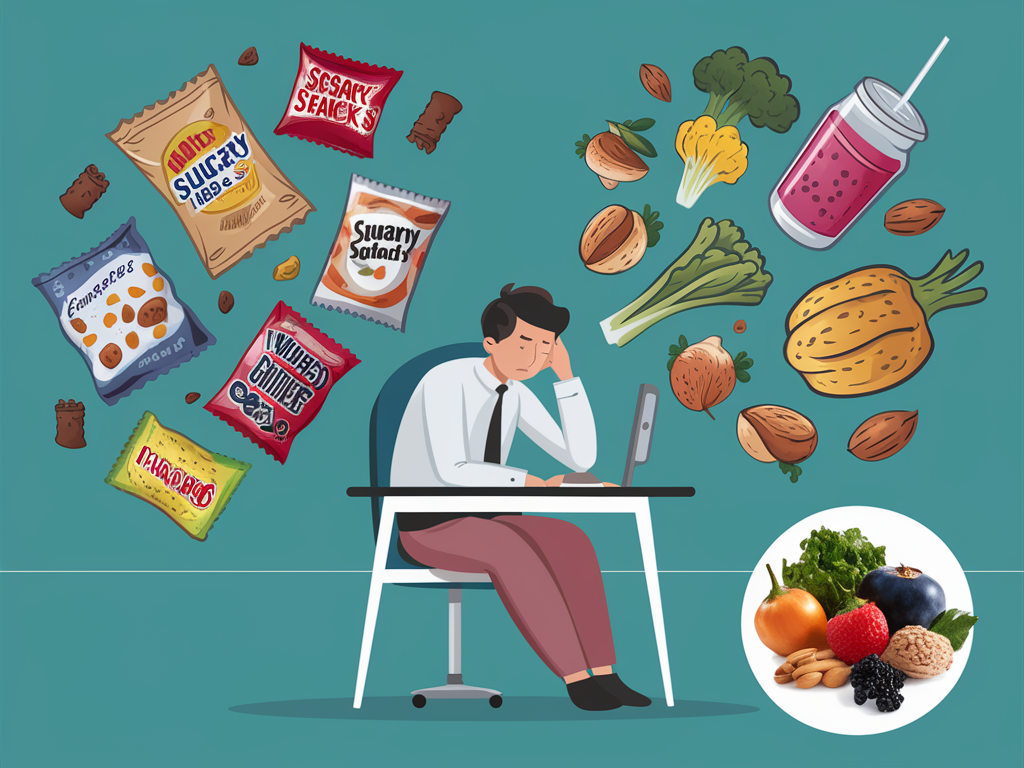Are you constantly battling exhaustion despite getting what seems like enough sleep? That persistent fatigue weighing you down isn’t just in your head—and you’re certainly not alone. Millions of people worldwide struggle with unexplained tiredness that affects their productivity, mood, and overall quality of life. While getting more sleep might seem like the obvious solution, the real causes of your energy depletion could be surprising and multifaceted.
In this comprehensive guide, we’ll explore 15 unexpected reasons behind your constant fatigue—many of which you may have never considered. Better yet, we’ll provide practical, science-backed solutions to help you reclaim your vitality and wake up feeling genuinely refreshed. From hidden physiological factors to lifestyle habits that secretly drain your energy, understanding these causes is your first step toward lasting energy improvements.
1. Poor Sleep Quality (Not Just Quantity)
While you might be logging eight hours in bed, the quality of your sleep matters more than the quantity. Sleep interruptions, even minor ones you don’t remember, prevent your body from reaching the deep, restorative phases of sleep essential for energy restoration.
Why it happens: Micro-awakenings throughout the night—often caused by noise, light, temperature fluctuations, or breathing issues—fragment your sleep cycle. Each interruption forces your brain to restart the sleep cycle, reducing time spent in deep sleep and REM sleep phases crucial for cognitive function and physical recovery.
Solution: Create a consistent sleep schedule by going to bed and waking up at the same time every day, even on weekends. Optimize your sleep environment by keeping your bedroom cool (65-68°F/18-20°C), completely dark, and quiet. Consider using a white noise machine to mask disruptive sounds and invest in a quality mattress and pillows that properly support your body.

2. Hidden Dehydration
You might not feel thirsty, but even mild dehydration—as little as 1-2% of your body weight—can significantly impact your energy levels and cognitive function.
Why it happens: Dehydration reduces blood volume, forcing your heart to work harder to deliver oxygen and nutrients throughout your body. This increased cardiovascular strain results in feelings of fatigue and reduced physical and mental performance. Many people consistently operate in a mildly dehydrated state without recognizing the symptoms.
Solution: Track your water intake using a marked water bottle or smartphone app. Set regular reminders to drink water throughout the day rather than waiting until you feel thirsty—thirst is actually a late indicator of dehydration. Aim for approximately 2-3 liters (8-10 cups) daily, adjusting for activity level, climate, and individual needs. Include hydrating foods like cucumbers, watermelon, and oranges in your diet.
3. Iron Deficiency
Iron deficiency is one of the most common nutritional deficiencies worldwide and a leading cause of unexplained fatigue, particularly among women of reproductive age.
Why it happens: Iron is essential for producing hemoglobin, the protein in red blood cells responsible for transporting oxygen throughout your body. Without adequate iron, your cells receive less oxygen, forcing your heart to work harder and leaving you feeling exhausted even during routine activities. Women who menstruate, pregnant women, vegetarians, and endurance athletes are at higher risk.
Solution: Incorporate iron-rich foods into your diet, including lean red meat, spinach, lentils, tofu, and fortified cereals. Pair these with vitamin C-rich foods like citrus fruits, bell peppers, or strawberries to enhance iron absorption. For significant deficiencies, consult with a healthcare provider about iron supplements, as improper supplementation can cause side effects or mask other health issues.
4. Excessive Screen Time
The constant presence of digital devices in our lives does more than occupy our attention—it actively interferes with our body’s natural energy regulation systems.
Why it happens: Blue light emitted from screens suppresses melatonin production, the hormone that signals your body it’s time to sleep. Additionally, the constant cognitive stimulation from social media, news, and entertainment creates a state of mental hyperarousal that makes it difficult to wind down. This disrupts your circadian rhythm—your body’s internal clock—leading to poor sleep quality and daytime fatigue.
Solution: Implement a digital sunset routine 1-2 hours before bedtime. Use blue light blocking glasses or screen filters in the evening. Enable night mode on devices when using them after sunset. Create tech-free zones in your home, particularly the bedroom, and replace nighttime scrolling with relaxing activities like reading physical books, gentle stretching, or meditation. Consider a periodic digital detox to reset your relationship with technology.
5. Undiagnosed Sleep Apnea
This common but frequently overlooked sleep disorder affects approximately 22 million Americans and causes profound daytime fatigue regardless of how many hours you spend in bed.
Why it happens: Sleep apnea causes breathing interruptions throughout the night—sometimes hundreds of times—when airway tissues collapse during sleep. Each interruption triggers a micro-awakening as your brain jolts you awake to resume breathing. While you may not remember these disruptions, they prevent you from reaching deep, restorative sleep stages, leading to chronic fatigue, morning headaches, and cognitive impairment.
Solution: Be alert to warning signs including loud snoring, gasping during sleep, morning headaches, dry mouth upon waking, and excessive daytime sleepiness. If you suspect sleep apnea, consult a sleep specialist for evaluation. Treatment options include continuous positive airway pressure (CPAP) therapy, dental appliances, lifestyle modifications such as weight loss for those who are overweight, and in some cases, surgical interventions.
6. Vitamin D Deficiency
Sometimes called the “sunshine vitamin,” vitamin D deficiency affects approximately 1 billion people globally and is strongly linked to fatigue and muscle weakness.
Why it happens: Vitamin D plays crucial roles in energy metabolism, muscle function, and mood regulation through its effects on mitochondrial activity and neurotransmitter production. Modern indoor lifestyles, northern latitudes with limited sun exposure, and consistent use of sunscreen can all contribute to insufficient vitamin D levels. Dark skin pigmentation also reduces vitamin D production from sunlight.
Solution: Aim for 10-30 minutes of midday sun exposure several times weekly (without sunscreen on arms and legs, though always protect your face). Incorporate vitamin D-rich foods like fatty fish (salmon, mackerel), egg yolks, mushrooms exposed to UV light, and fortified dairy or plant milks. For many people, especially during winter months or in northern climates, supplementation under medical guidance may be necessary. A simple blood test can determine your current levels.
7. Chronic Low-Grade Inflammation
Silent inflammation throughout your body creates a constant energy drain as your immune system remains in a state of low-level activation.
Why it happens: Modern lifestyle factors including processed food consumption, environmental toxins, chronic stress, and disrupted sleep patterns trigger inflammatory responses intended for acute threats. This persistent inflammation diverts energy resources toward immune function and away from normal cellular processes. Inflammatory cytokines also directly impact brain function, creating “sickness behavior” characterized by fatigue and reduced motivation.
Solution: Adopt an anti-inflammatory diet rich in colorful vegetables, fatty fish, olive oil, nuts, seeds, and berries while minimizing ultra-processed foods, refined carbohydrates, and industrial seed oils. Prioritize stress management through meditation, deep breathing exercises, or gentle movement practices like yoga or tai chi. Ensure adequate sleep and consider targeted supplements such as omega-3 fatty acids, turmeric with black pepper, or ginger after consulting with a healthcare provider.

8. Sedentary Lifestyle
While it might seem counterintuitive, sitting for prolonged periods actually depletes your energy rather than conserving it.
Why it happens: Extended physical inactivity reduces circulation, decreases mitochondrial function (your cellular energy factories), and leads to muscle deconditioning. Sitting for long periods slows metabolism and causes blood to pool in the lower extremities, reducing oxygen delivery throughout the body. Your body quite literally becomes less efficient at producing and utilizing energy when movement is minimal.
Solution: Incorporate movement breaks throughout your day by setting a timer to stand and stretch every 30-60 minutes. Aim for at least 150 minutes of moderate-intensity exercise weekly, spread across several days. Add strength training 2-3 times weekly to build mitochondria-rich muscle tissue. Simple changes like taking stairs, parking farther away, conducting walking meetings, or using a standing desk can significantly increase daily movement. Remember, even light activity is substantially better than none.
9. Blood Sugar Imbalances
The rollercoaster of blood glucose levels throughout the day can leave you feeling energetic one moment and completely drained the next.
Why it happens: High-carbohydrate meals, especially those containing refined sugars and flours, cause rapid blood sugar spikes followed by compensatory insulin release. This often leads to reactive hypoglycemia—blood sugar dropping too low—triggering fatigue, irritability, and cravings. Additionally, consistently elevated blood sugar causes inflammation and reduces cellular energy efficiency. The resulting energy fluctuations can disrupt productivity and mood throughout the day.
Solution: Balance your macronutrients by including protein, healthy fats, and fiber with every meal to slow glucose absorption. Replace refined carbohydrates with complex, fiber-rich alternatives like whole grains, legumes, and vegetables. Maintain regular meal timing to prevent extreme hunger and subsequent overeating. Consider eating smaller, more frequent meals if you’re prone to energy crashes. Exercise regularly to improve insulin sensitivity and glucose utilization.
10. Adrenal Fatigue
Chronic stress can overwhelm your body’s stress response system, leading to a state where you feel constantly tired yet wired.
Why it happens: Prolonged psychological or physiological stress keeps your adrenal glands working overtime to produce cortisol and other stress hormones. Eventually, this system becomes dysregulated, potentially affecting cortisol’s natural daily rhythm—highest in the morning to help you wake up and lowest at night to allow sleep. The result can be morning fatigue, afternoon crashes, and nighttime insomnia, creating a vicious cycle of exhaustion.
Solution: Implement stress reduction techniques such as mindfulness meditation, progressive muscle relaxation, or guided breathing exercises. Prioritize restorative activities that activate your parasympathetic (“rest and digest”) nervous system. Consider adaptogenic herbs like ashwagandha, rhodiola, or holy basil, which may help normalize stress hormone production (consult a healthcare provider first). Establish clear boundaries between work and personal time, and learn to practice saying “no” to prevent overcommitment.
11. Thyroid Dysfunction
Your thyroid gland acts as your body’s metabolic control center, and even mild dysfunction can lead to profound fatigue.
Why it happens: Hypothyroidism (underactive thyroid) reduces the production of thyroid hormones that regulate metabolism in every cell of your body. This slows down virtually all bodily processes, resulting in fatigue, weight gain, cold intolerance, and slowed thinking. Hyperthyroidism (overactive thyroid) can also cause fatigue by creating a state of constant physiological overdrive that depletes energy reserves. Both conditions are more common in women and often develop gradually.
Solution: If you suspect thyroid issues, seek comprehensive testing including TSH, free T3, free T4, and thyroid antibodies. Standard screenings often miss subclinical cases. Treatment typically involves medication to correct hormone imbalances under medical supervision. Support thyroid function with proper nutrition, including adequate selenium, zinc, iodine (unless you have Hashimoto’s thyroiditis), and tyrosine. Minimize exposure to endocrine-disrupting chemicals found in some plastics, pesticides, and personal care products.
12. Overtraining or Undertraining
Both excessive exercise without adequate recovery and insufficient physical activity can manifest as persistent fatigue.
Why it happens: Overtraining creates systemic inflammation, hormonal imbalances, and depletes glycogen stores faster than they can be replenished. Signs include declining performance despite increased effort, prolonged recovery needs, and disrupted sleep. Conversely, undertraining leads to reduced cardiovascular capacity, decreased mitochondrial density, and muscle deconditioning, making even routine activities feel exhausting.
Solution: Develop a structured training plan with balanced intensity—include high-intensity, moderate, and low-intensity sessions throughout your week. Schedule dedicated recovery days and prioritize post-exercise refueling with protein and carbohydrates. Monitor resting heart rate; an elevation of 5+ beats per minute upon waking may indicate insufficient recovery. For those who are underactive, begin with gentle, enjoyable activities like walking, swimming, or cycling, gradually increasing duration before intensity.
13. Overconsumption of Caffeine
The very substance many people rely on for energy can ultimately contribute to deeper fatigue when used improperly.
Why it happens: Caffeine blocks adenosine receptors, temporarily preventing the perception of fatigue. However, adenosine continues accumulating, leading to a “crash” when caffeine wears off. Regular high consumption leads to tolerance, requiring more caffeine for the same effect. Afternoon or evening consumption interferes with sleep quality, creating a dependency cycle where you need caffeine because caffeine disrupted your sleep.
Solution: Practice strategic caffeine timing by consuming it before 12 PM and never within 8-10 hours of bedtime. Gradually reduce intake to minimize withdrawal symptoms like headaches and irritability. Consider cycling off caffeine periodically to reset sensitivity. Explore alternatives like green tea (with L-theanine that moderates caffeine’s effects) or adaptogenic herbs for sustained, balanced energy. Stay hydrated, as caffeine has mild diuretic effects.
14. Emotional Exhaustion
Psychological fatigue—from anxiety, depression, grief, or unresolved emotional issues—can manifest as physical exhaustion that no amount of rest seems to fix.
Why it happens: Emotional distress activates stress responses that consume significant energy resources. Rumination (repetitive negative thinking) creates mental hyperarousal that prevents true mental rest. Depression often manifests with decreased motivation and energy depletion at the neurochemical level. Both suppressed emotions and emotional hypervigilance require substantial cognitive resources, leading to a state of mental depletion that feels physically draining.
Solution: Develop emotional regulation techniques through mindfulness practices, which help separate thoughts from reactions. Consider professional support through therapy modalities like cognitive-behavioral therapy (CBT) or acceptance and commitment therapy (ACT). Maintain social connections, as isolation often intensifies emotional exhaustion. Practice self-compassion and set realistic expectations during difficult emotional periods. For some, professional mental health support and possibly medication may be necessary components of recovery.

15. Medication Side Effects
Many commonly prescribed and over-the-counter medications list fatigue among their potential side effects.
Why it happens: Various medications can cause fatigue through different mechanisms. Blood pressure medications may reduce blood flow or alter electrolyte balance. Antihistamines often cross the blood-brain barrier and block alertness-promoting histamine receptors. Some antidepressants, statins, benzodiazepines, and pain medications can directly impact energy metabolism or neurotransmitter function. The effect may be immediate or develop gradually over weeks of use.
Solution: Never discontinue prescribed medications without consulting your healthcare provider, but do schedule a comprehensive medication review. Discuss the timing of medication doses—sometimes taking certain drugs at night rather than morning can help minimize daytime fatigue. Ask about alternative medications with different side effect profiles or adjusted dosing strategies. For some medications, supplemental nutrients may help offset energy-depleting side effects.
Conclusion
Persistent fatigue rarely stems from a single cause—more often, it results from a combination of several factors working together. The good news is that recognizing these potential energy drains gives you specific, actionable strategies to reclaim your vitality.
Begin by tracking your energy levels throughout the day to identify patterns. Then implement changes gradually, starting with the solutions that seem most relevant to your situation. Remember that sustainable energy isn’t about quick fixes but rather building habits that support your body’s natural energy production systems.
If fatigue persists despite implementing these strategies, don’t hesitate to seek medical evaluation. Chronic fatigue can sometimes indicate underlying medical conditions requiring specific treatment. Your health deserves attention, and with the right approach, you can rediscover what it feels like to move through your days with abundant, consistent energy.

